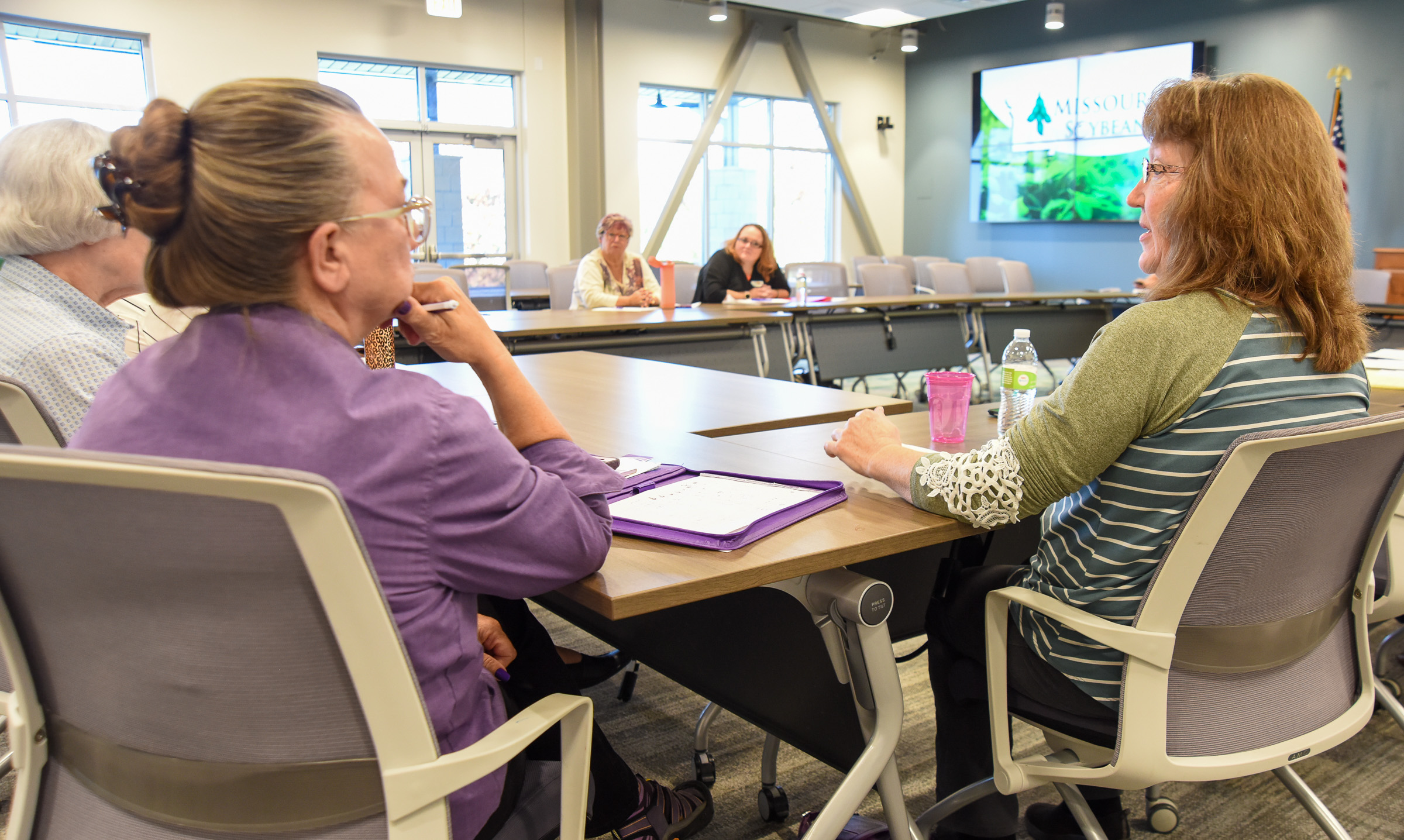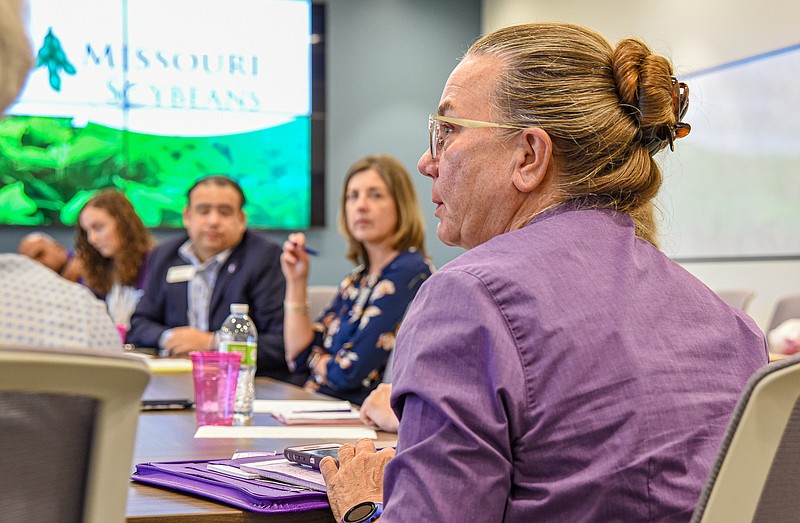If you have a loved one or friend with Alzheimer's disease or other dementias, or you work with people with dementia, state officials want to hear what you have to say.
Missouri's Alzheimer's State Plan Task Force and the Alzheimer's Association are listening during town hall meetings all across the state.
Jerry Dowell, Alzheimer's Association Greater Missouri Chapter vice president of public policy, told listeners that Missouri's statutes are broad and nonspecific concerning some safety and care for seniors in nursing care.
The state has regulations for schools and other institutions where our children are during the day, but has very few regulations intended to protect and care for seniors, Shannon Hasenstein, an Aging Best case worker for Cole County, told a Jefferson City town hall meeting Tuesday.
"Why do we not have the same standards for our older adults?" Hasenstein asked.
Those are questions the task force is trying to answer, Dowell told her.
"There are no specific standards on the number of people that you need to work inside a facility," he continued.
The town halls, or listening sessions, are opportunities for the task force to learn from state residents what they need in dementia care and education. They are open forum discussions.
Caregivers share their experiences with the task force during the sessions.
All 50 states have task forces, and plans in reference to Alzheimer's disease. It's been about 12 years since Missouri has updated its state plan.
Dowell said the only standard that exists inside statutes relates to fire alarms and sprinkler systems.
Hasenstein said it's a concern that Missouri doesn't regulate how many staff it takes to care for residents in nursing facilities.
"That's an issue. You're going to have facilities that are going to be understaffed on purpose," she said. "Because there's nothing telling them they have to have so many people. So there are going to be things dropping through the cracks. That's where you have the horror stories."
Discussions ranged from finding money for respite services to what effect a potential statewide dementia services coordinator would have on Missouri's care for people with dementia, and support for caregivers.
When he got started with the task force, Dowell said, organizers talked about four issue areas -- quality of care; access to care support and treatment; getting a proper diagnosis; and a coordinated response.
"What I'm looking for is -- what else inside of what would be a coordinated response do you think is lacking?" Dowell asked.
The Alzheimer's Association works with Missouri Department of Health and Senior Services on a behavioral risk assessments questionnaire, he added. This year, it asks caregivers how the state takes resources available and puts them into a coordinated response.
It has been 12 years since Missouri has revised its current plan. A lot has happened in research and Alzheimer's care during that span, Dowell said. A goal of the task force is to examine disparities in Alzheimer's rates for minorities and underserved areas. It would like to identify how it can better work with federal partners to provide services for Missourians. The task force wants to be sure the latest Alzheimer's disease updates science are shared across all state agencies.
"We want person-centered dementia care," he said. "We've also found -- and some facilities have found -- the more highly trained their staff is, the more likely they are to stick around, and decrease turnover."
Sarah Lovegreen, a task force member, said members can exchange information among themselves, but it's really important for members to hear from constituents.
"Whatever you're experiencing," Lovegreen said. "Whether it's here in Jefferson City, whether in Cole County, or the community, we'll get out of it what you put into it for us."
A concern in the public, said Robin Hunziker, is that so many people don't know the difference between Alzheimer's disease and dementia -- or that there are different types and causes.
 Julie Smith/News Tribune photo: Robin Hunziker, right, talks about issues with which she and her siblings are dealing in caring for their mother who has Alzheimer's. The issues range from finding a support group where her mom lives, maintaining consisstency of care as siblings take turns being with her and other items. Hunziker attended Tuesday's Alzheimer's State Plan Task Force at the Missouri Soybean Association community room. Seated at left is Amelia Cottle, an Alzheimer's and dementia community educator and advocate who offered ideas to those in attendance.
Julie Smith/News Tribune photo: Robin Hunziker, right, talks about issues with which she and her siblings are dealing in caring for their mother who has Alzheimer's. The issues range from finding a support group where her mom lives, maintaining consisstency of care as siblings take turns being with her and other items. Hunziker attended Tuesday's Alzheimer's State Plan Task Force at the Missouri Soybean Association community room. Seated at left is Amelia Cottle, an Alzheimer's and dementia community educator and advocate who offered ideas to those in attendance.
